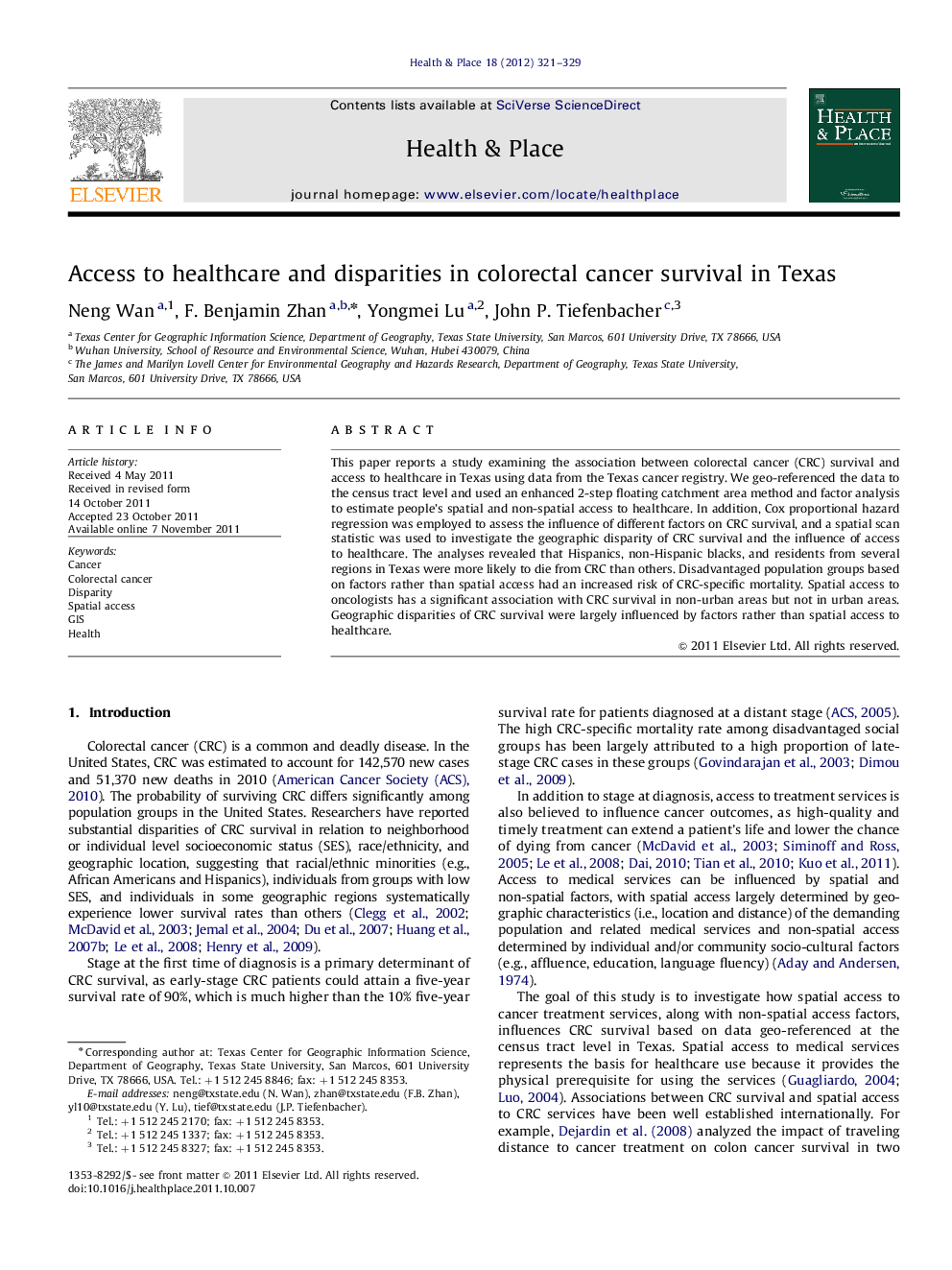| Article ID | Journal | Published Year | Pages | File Type |
|---|---|---|---|---|
| 10502676 | Health & Place | 2012 | 9 Pages |
Abstract
This paper reports a study examining the association between colorectal cancer (CRC) survival and access to healthcare in Texas using data from the Texas cancer registry. We geo-referenced the data to the census tract level and used an enhanced 2-step floating catchment area method and factor analysis to estimate people's spatial and non-spatial access to healthcare. In addition, Cox proportional hazard regression was employed to assess the influence of different factors on CRC survival, and a spatial scan statistic was used to investigate the geographic disparity of CRC survival and the influence of access to healthcare. The analyses revealed that Hispanics, non-Hispanic blacks, and residents from several regions in Texas were more likely to die from CRC than others. Disadvantaged population groups based on factors rather than spatial access had an increased risk of CRC-specific mortality. Spatial access to oncologists has a significant association with CRC survival in non-urban areas but not in urban areas. Geographic disparities of CRC survival were largely influenced by factors rather than spatial access to healthcare.
Related Topics
Health Sciences
Medicine and Dentistry
Public Health and Health Policy
Authors
Neng Wan, F. Benjamin Zhan, Yongmei Lu, John P. Tiefenbacher,
